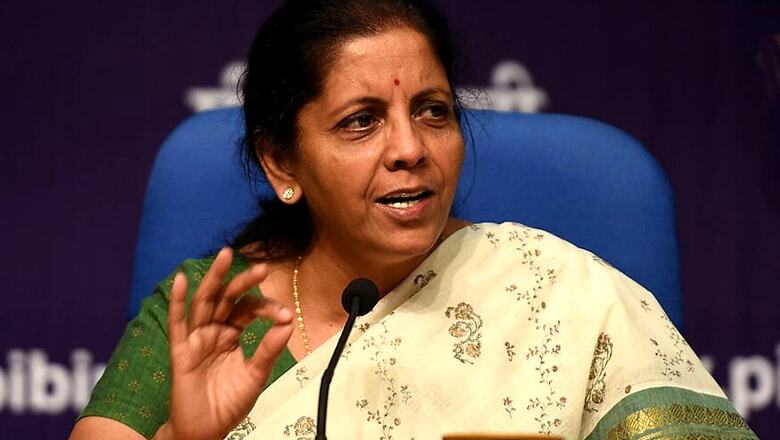
views
The Finance Ministry and RBI will hold a meeting on Tuesday to decide on the government's borrowing plan for the first half of 2020-21 amid the lockdown to contain the spread of coronavirus.
According to sources, the government would resort to front-load its borrowing plan to deal with the challenges posed by COVID-19 on the economy.
The meeting between the Finance Ministry and Reserve Bank of India (RBI) will be held through video conferencing for the first time as there is lockdown across the country, the sources said.
Post meeting, the borrowing calendar for issuance of dated government securities and short term papers will be announced in the evening.
As per the Budget, the government plans to borrow Rs 5.36 lakh crore from the market in 2020-21, higher than the Rs 4.99 lakh crore estimated for the current financial year ending March 2020.
The gross borrowing would be Rs 7.8 lakh crore for the next financial year as compared to Rs 7.1 lakh crore estimated for the current financial year.
Gross borrowing includes repayments of past loans. Repayment of past loans in the next financial year has been pegged at Rs 2.35 lakh crore.
Presenting Budget for 2020-21, Finance Minister Nirmala Sitharaman had said, "Net market borrowings for the year 2019-20 would be Rs 4.99 lakh crore and for the year 2020-21, it would be Rs 5.36 lakh crore".
"A good part of the borrowings for the financial year 2020-21 would go towards capital expenditure of the government that has been scaled up by more than 21 per cent.
"As I had previously mentioned another about Rs 22,000 crore have been allocated for equity to fund certain specified infrastructure finance companies, who would leverage it manifold and provide much-needed long-term finance to the infrastructure sector. That should spur growth impulses in the economy," she had said.
The government raises funds from the market to fund its fiscal deficit through dated securities and treasury bills.
The Budget has pegged fiscal deficit at 3.5 per cent for the next fiscal, down from 3.8 per cent of the GDP in the current financial year.
The government had earlier estimated the fiscal deficit to be 3.3 per cent of the GDP for the current fiscal but due to revenue shortage, the Centre had to increase it and utilise the 'escape clause' in the Fiscal Responsibility and Budget Management (FRBM) Act.
The 'escape clause' allows the government to breach its fiscal deficit target by 0.5 percentage points at times of severe stress in the economy, including periods of structural change and those when growth falls sharply.




















Comments
0 comment